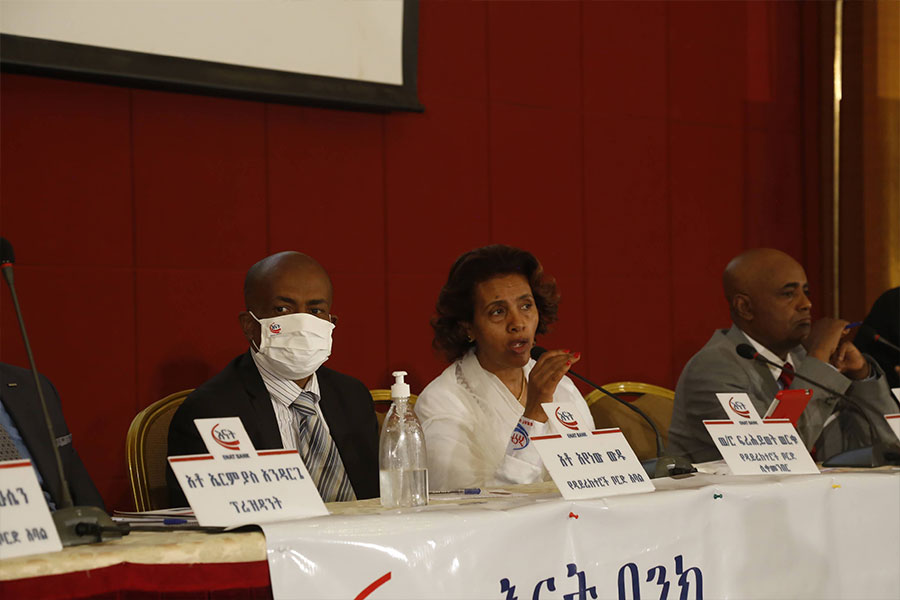
Verbatim | Nov 20,2021
Dec 10 , 2022
By Shewangezaw Seyoum
The civil war in the north has caused considerable losses in human lives, damaged economic and social infrastructure and dislocated many people. The war has also meant the diversion of resources away from development and social spending into war financing. The impact is nothing but consequential.
The federal government's independent economic advisors have not only concurred with the adverse outcomes. They have also put numbers on the facet. The damage caused and the costs incurred were higher than the government's estimates. Major macroeconomic indicators such as GDP, productivity and government expenditure have all suffered.
The gross domestic product (GDP) has shown a three percent deviation from the base, following a downward trajectory. Other indicators like private consumption have also demonstrated significant reduction. The socioeconomic consequences of falling household income and poverty increase are clear examples.
The federal government has now drawn up a three-year recovery plan to revive the economy and get back on the development track. After a surprise breakthrough in peace talks in Pretoria, South Africa, and a cease-fire that seems to be holding despite hurdles, this has given rise to enthusiasm. The hope is that the country will be able to recover faster and better. The plan is optimistic with an accelerated recovery scenario, hoping to see a high growth rate of the economy (GDP) and the different sectors.
More importantly, poverty is to be reduced much faster. Building the productive capacity of the country is the focus of this scenario. Humanitarian support is also involved for the needy. All is well up to this point.
The Achilles' heel of this idea comes with its massive investment requirement. Specifically, the price tag of the scenario is much higher, begging questions about the source of financing. With the kind of money required, the authors of the economic advisors study boldly recommend whole ownership of the recovery by the country. This means Ethiopia and its citizens should bear the entire financing burden. Delving into the details of the public and private sectors, enterprises and exporters are expected to generate the resources needed.
Over the years, the economy has been rocked by multiple and concurrent shocks, weakening its capacity to generate the resources needed reliably. Raising taxes on businesses could be an economic injection. But, usually, companies pass over the added tax to consumers with galloping inflation. This would make already weary citizens worse off. The broader macroeconomic reality will not allow it to implement inflationary financing.
Talk of public-private partnership likewise might not hold water as firms have been operating at a low capacity that, in turn, eroded their revenues and profits. To make matters worse, and with the current global situation, there appears to be little appetite to back up a marshal plan.
The federal government's inability to implement effective countermeasures once it took control of Tigray's capital, Meqele, in the first-round military campaign two years ago seems to have convinced officials it won't be different this time. With a military solution out of the way, the two parties have reached an agreement. The negotiations are yet to be completed, and the peace process has just begun.
The road to peace is likely to be bumpy. A faster and better economic recovery will not only be good on its own, but it can also foster peace and reconciliation. It has added importance. But, we need to craft reliable recovery plans with innovative financing strategies to get around the current bottleneck.
PUBLISHED ON
Dec 10,2022 [ VOL
23 , NO
1180]


Verbatim | Nov 20,2021

Radar | Jun 03,2023

Viewpoints | Dec 11,2020

Editorial | Nov 07,2020

Editorial | Apr 06,2024

Viewpoints | Jan 28,2023

Fortune News | Jan 22,2022

Fortune News | Feb 09,2019

Fortune News | Apr 30,2022

Viewpoints | Aug 20,2022

Photo Gallery | 178199 Views | May 06,2019

Photo Gallery | 168406 Views | Apr 26,2019

Photo Gallery | 159179 Views | Oct 06,2021

My Opinion | 137055 Views | Aug 14,2021
Commentaries | Oct 25,2025

Dec 22 , 2024 . By TIZITA SHEWAFERAW
Charged with transforming colossal state-owned enterprises into modern and competitiv...

Aug 18 , 2024 . By AKSAH ITALO
Although predictable Yonas Zerihun's job in the ride-hailing service is not immune to...

Jul 28 , 2024 . By TIZITA SHEWAFERAW
Unhabitual, perhaps too many, Samuel Gebreyohannes, 38, used to occasionally enjoy a couple of beers at breakfast. However, he recently swit...

Jul 13 , 2024 . By AKSAH ITALO
Investors who rely on tractors, trucks, and field vehicles for commuting, transporting commodities, and f...

Oct 25 , 2025
The regulatory machinery is on overdrive. In only two years, no fewer than 35 new pro...

Oct 18 , 2025
The political establishment, notably the ruling party and its top brass, has become p...

Oct 11 , 2025
Ladislas Farago, a roving Associated Press (AP) correspondent, arrived in Ethiopia in...

Oct 4 , 2025
Eyob Tekalegn (PhD) had been in the Governor's chair for only weeks when, on Septembe...

Oct 25 , 2025 . By YITBAREK GETACHEW
Officials of the Addis Abeba's Education Bureau have embarked on an ambitious experim...

Oct 26 , 2025 . By YITBAREK GETACHEW
The federal government is making a landmark shift in its investment incentive regime...

Oct 29 , 2025 . By NAHOM AYELE
The National Bank of Ethiopia (NBE) is preparing to issue a directive that will funda...

Oct 26 , 2025 . By SURAFEL MULUGETA
A community of booksellers shadowing the Ethiopian National Theatre has been jolted b...